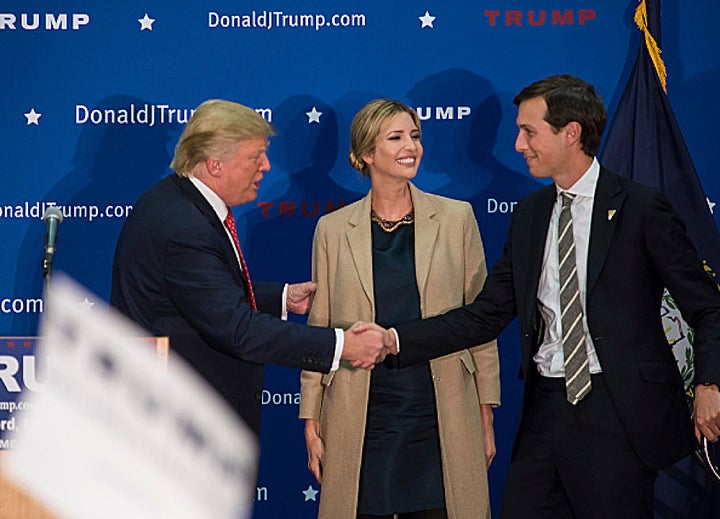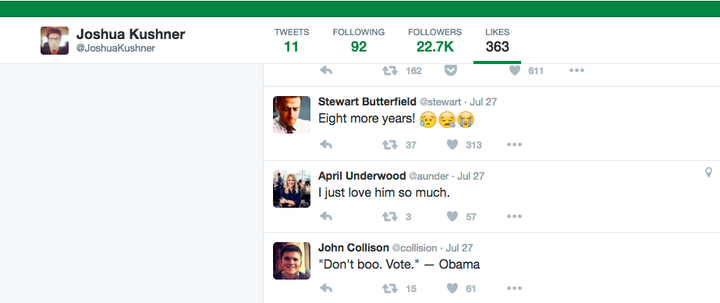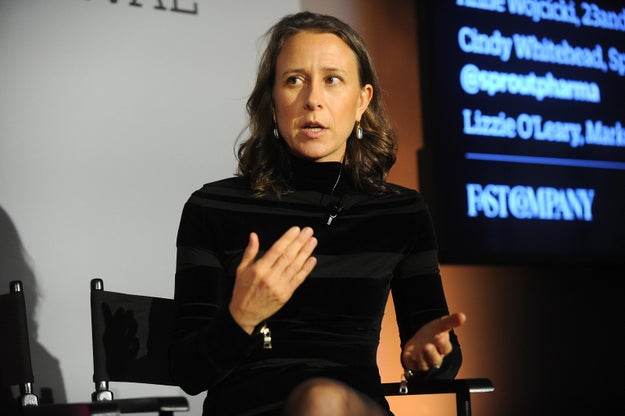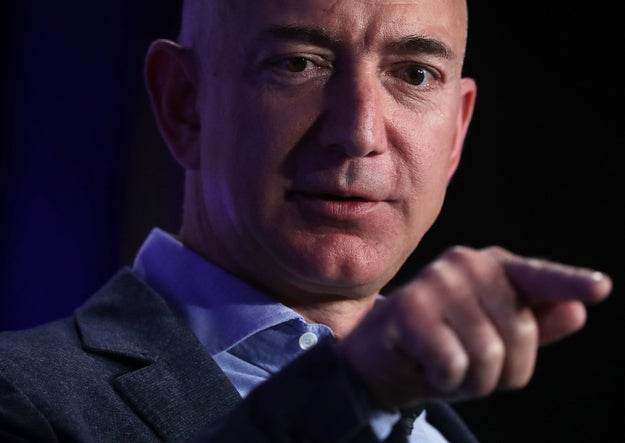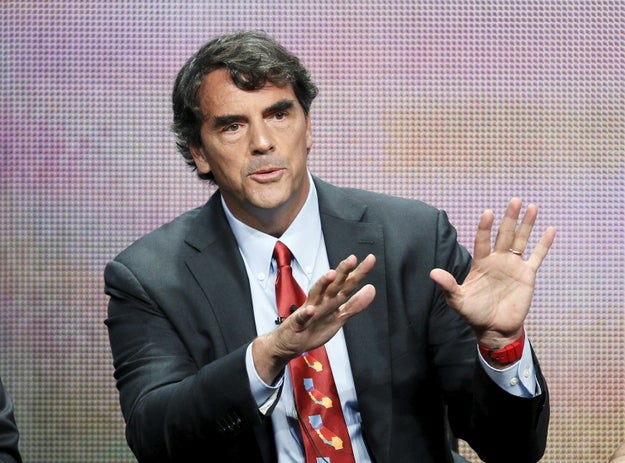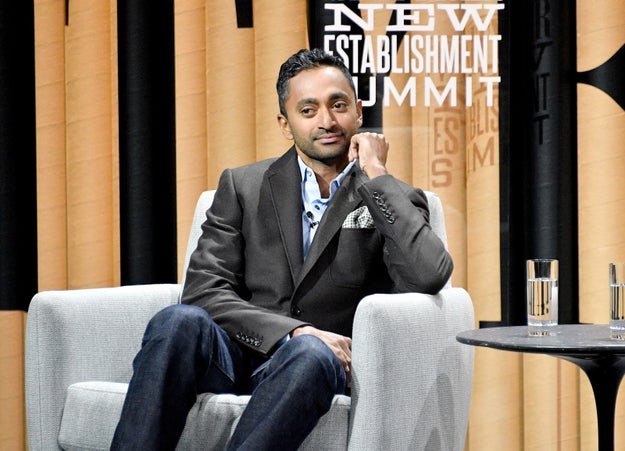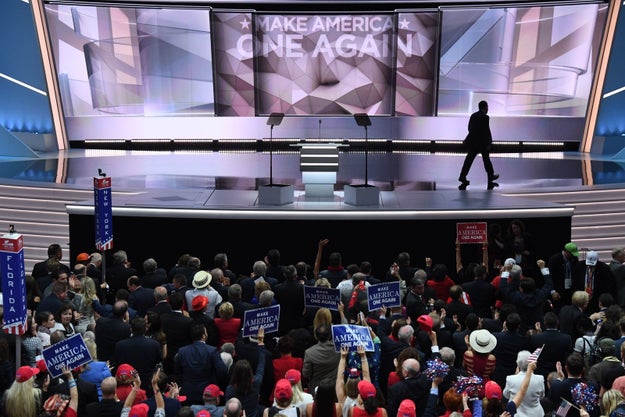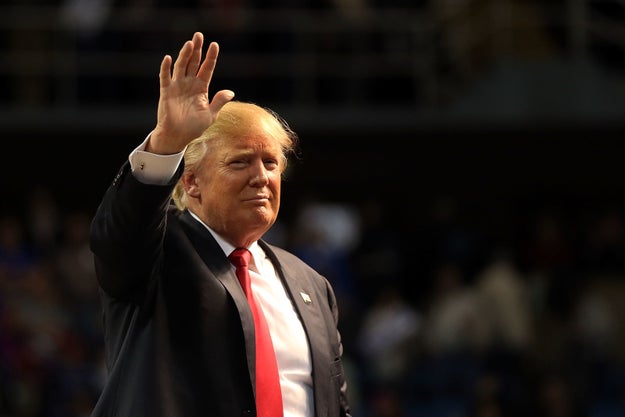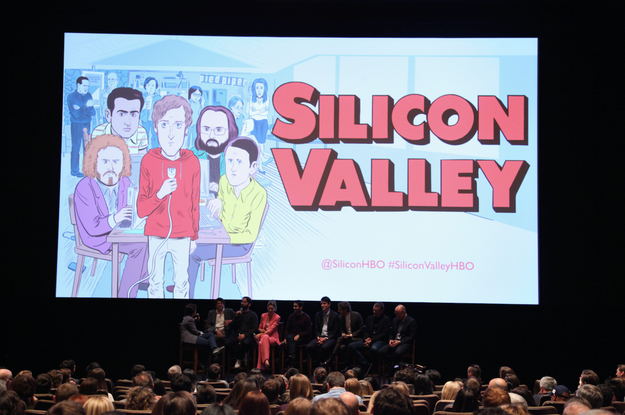Image may be NSFW.
Clik here to view.
Courtesy C3 Silicon Valley / Via Facebook: C3SiliconValley
This spring, C3 Silicon Valley (C3SV) — an independent offshoot of a Pentecostal megachurch, with three Bay Area locations — posted a rap video on its Facebook wall advertising Easter services. The lyrics were written by a former Google employee who now works full-time as a pastor for the church, and they are heavily laced with startup lingo.
"I’ve made so many errors you can’t even debug it / Like an elephant in the room, there’s no seeing above it / Got a job making money, but don’t even love it,” a young black man dressed like Mark Zuckerberg tells the camera. Quick cuts of distraught people and graffiti-covered buildings flash by as he continues rhyming about faith, skepticism, and venture capital: “If I had a startup, it would get a network effect / The valuation goes up, but is my value still met?"
Members of the church who work at Facebook — and there are many — used their allotted credits to boost the visibility of the post. As of this writing, it has about 61,000 views, roughly 80 times as many as the online recording of the Easter sermon itself.
Silicon Valley might seem like an odd place for a religious revival, but the founders of C3SV have nonetheless appointed themselves missionaries to the locals, and are happily spreading the good word in the seat of innovation. The church is led by Adam Smallcombe, a charismatic 35-year-old pastor with an alt-country undercut, a winsome rhetorical style, and an affinity for motorcycles. Smallcombe and his wife, Keira, moved here from Sydney, Australia, in 2012, leaving jobs as youth ministers to “plant” a church in the Bay Area.
The C3 in the church’s name refers to C3 Global, formerly Christian City Church International, a Pentecostal (or “charismatic”) institution that launched in 1980 and went global as part of the wave of similar megachurches that emerged out of Australia in recent decades. The most famous of them is undoubtedly Hillsong Church, which has cultivated a youthful following despite its controversy-plagued leadership. Global outposts have attracted fashion models, NBA stars, and even Justin Bieber through upbeat, musically oriented sermons and rock star–like preachers who broadcast glamorous lives on social media.
A recent billboard for a C3 church in Toronto, for example, reads “For God So Loved the 6,” a reference to the rapper Drake’s nickname for his hometown.
C3SV is not affiliated with Hillsong, but it too aims to propagate its gospel by attracting the cool, young people in its own neighborhood — except that in Silicon Valley, those millennial influencers tend to work in tech. The constitution for Christian City Church International actually encourages a sort of modular adaptability, so that each individual church can be dressed up to blend into its environment. The church has “no particular ‘style,’” the constitution says. Rather, ministers are instructed to present New Testament principles in a “culturally relevant manner.” (A recent billboard for a C3 church in Toronto, for example, reads “For God So Loved the 6,” a reference to the rapper Drake’s nickname for his hometown.)
And so here in Silicon Valley, the Smallcombes are selling religion like a software product to a room studded with Apple employees and data-startup engineers. C3SV’s website, with its fresh design and frictionless commerce, looks like it could belong to any number of Valley startups; its donations page starts with the words “INVEST IN ETERNITY” and could just as easily work as crowdfunding for a cryogenics company. On Facebook, where C3SV has 7,000 fans, the church’s posts read with the chipper cultural fluency of any savvy #brand. Last month, at the apex of Pokémon Go mania, one said, in part, "To sum it up..we want to be the 'Pokemon Go' of churches. After all, the Great Commission is clear: GOTTA CATCH EM ALL!"
In Palo Alto, services take place in a rented Jewish Community Center a six-minute drive from Google’s headquarters and a 12-minute drive from Facebook (in Valley tradition, the Smallcombes refer to the location as a “campus"). The San Francisco campus’s co-pastors are Vance Roush, a former quality associate for Google who wrote the rap, and his wife, Kim. The co-pastors of the San Jose campus, Adam and Amy Hahn, are also a married couple: Adam recently left his role as a recruiter for Facebook to work full-time for the church, and Amy works as a recruiter for Apple.
“We didn’t start this church just to create another church,” Smallcombe told me this spring. “We wanted to create a church that really appeals to the engineers of Silicon Valley.”
“We didn’t start this church just to create another church. We wanted to really appeal to the engineers of Silicon Valley.”
Available research indicates that, generally speaking, what appeals to the engineering class is secular thinking. Less than 5% of Silicon Valley residents attend church on Sundays, according to data from the Barna Group, an evangelical polling firm. Prevailing sentiment is that tech workers consider themselves too smart, too rational, and too comfortable to need God.
And so C3SV's sales pitch cannily inoculates itself from skepticism. Despite its Pentecostal roots, C3SV calls itself nondenominational, and at the end of the Easter video, it declares onscreen, “NOT RELIGIOUS? NEITHER ARE WE." Drive around the Bay Area long enough and you’ll see the same mantra splashed across billboards along the region’s highways.
But if “not religious” applies to C3SV’s marketing, it does not apply to its message, a distinction that became clear a few minutes into Easter services, when the fog machine kicked in and the worship team (a band of volunteers dressed in skinny jeans, flat-brimmed baseball hats, and flannel shirts) started playing soulful renditions of Christian pop hits. Lyrics like “The resurrecting King is resurrecting me” were displayed, karaoke-style, on a screen behind them. Smallcombe’s Easter sermon was called “Jesus Turns Tables,” and he delivered it with a big picture of the Last Supper in the background.
The dress code was Wholesome Coachella — maxi dresses, floppy felt hats, brightly colored jeans — and newcomers were handed a little cloth drawstring pouch that included a disposable cup, redeemable for a free cup of Apostle Coffee, sold in a little stand outside the auditorium ($3.50 for a flat white, $4.50 for a mocha). A pre-services slide deck included a call for designers and front-end developers to help the church with its design skills, and the main sermon was part of a series called Going Public.
“We’re not talking about an initial public offering,” Smallcombe explained. “We’re talking about being bold with the message of love, being bold with the message of grace, and really trying to change people’s perspective with how they see the church.” Like coming out of the closet as a Christian? “Absolutely,” he said.
Image may be NSFW.
Clik here to view.
Nitasha Tiku / BuzzFeed News
The Smallcombes never thought they’d end up in the US. “We weren’t thinking California — we were thinking Sydney, Australia. We’ve got beautiful beaches, amazing coffee. We thought, Hey, we’ll suffer for Jesus in the northern beaches of Sydney,” Adam quipped.
The first time Smallcombe told me the story of how he ended up in Silicon Valley, he said it started with a tweet from “a dear friend” who posted that he would love to see more churches in the region. Smallcombe didn’t mention the fact that there was already another C3 church in the Bay Area, or that the friend was his uncle, who founded C3SF (a separate institution from C3SV's services in San Francisco) 13 years ago.
Smallcombe’s grandfather was also a church planter in Australia. When I asked about the family business, Smallcombe said, “I guess you could say it’s in the family to do ministry,” as though the connection had just occurred to him.
The rest of the details, however, remained consistent between tellings. The Smallcombes were driving when they saw the fateful tweet that suggested planting a church in San Francisco. The couple, both college pastors, decided to visit, almost as a way to cross it off their list, and decided to swing by Stanford. In line at a Starbucks, the guy in front of them struck up a conversation. Smallcombe told him they were considering a startup church. “He looked at me really funny, as you can imagine, and he began to tell me the reasons why we shouldn’t start a church in the Bay Area. People have too much money, nobody needs God, everyone’s way too intellectual for that kind of thing — everything negative he was saying, maybe it’s just my nature, was confirmation for us. It was like waving a red flag to a bull. We’re like, 'This is it, we’re going to do this.'” His wife nodded.
That’s not to say that the Smallcombes’ beliefs have blended frictionlessly with Bay Area culture. For all the emphasis on making people feel welcome, Smallcombe’s response to questions about the church’s stance on homosexuality was evasive. “There’s a big difference between acceptance and approval,” he said. “I might not approve of somebody’s lifestyle, but I don’t need to approve of it. If I’m at a dinner table with them having a conversation, what I will do is, if they invite my perspective in, I will tell them what I believe and what I see the Bible’s position is but fundamentally I love them. I love people if they never ever change.”
Not coming out in support of gay marriage is a position, I said. Smallcombe replied that his position was love.
C3SV's parent, C3 Global, has plans as ambitious as any startup’s. Right now, it claims to have 400 churches in 64 countries; by 2020, it plans to have 1,000 outposts with 500 members apiece. Smallcombe said the church is “aggressive” with sending out church plants, which “doesn’t necessarily come with church funding — you have to raise that yourself, missionary-style.”
Richard Flory calls this kind of expansion the “franchise model.” Flory, a senior research director at the University of Southern California's Center for Religion and Civic Culture, visited Pentecostal megachurches for an upcoming book about changes in the religious landscape. Planting a new offshoot usually begins with “a soft launch in somebody’s apartment,” he said. In C3SV’s case it was at the Smallcombes' rental home in San Jose. (“We rent as a church and we rent as a couple and a family as well,” Smallcombe told me.)
Even when there is no direct financial connection, churches benefit from support networks. “They will go to each other’s conferences and they will essentially bring their own followers,” said Flory. Franchisees can also capitalize on the name brand and global reach through music, which allows them to grow very quickly, he said.
In less than four years, C3SV has drawn in more than 3,000 visitors, mostly from congregants inviting their friends, co-workers, and family members. The church has about 1,500 active members, and across all four Easter services, Smallcombe said about 1,300 people showed up. Stripping religion off the veneer of the church makes it easier to introduce it to others. Smallcombe said he wanted to create a church where members “weren’t ashamed or afraid to invite people.”
But he shrugged off the notion that acting as a missionary to Silicon Valley was a calculated move. “We definitely were aware ... that the influence out of this region is unlike any other region in the world," he said. "Our church is definitely not being funded by wealthy people. It’s by people who are just normal, average people, but they’re generous, even though [they are] paying [exorbitant] rent. They have seen what God has done in their life and for them I think it’s just a way to honor God and glorify God and give back.”
C3SV recommends tithing 10% of your income, though Smallcombe stressed that all you needed to do to be a member of the church is show up. This year, the donations page of C3SV’s website featured a video of a young black couple, Luke and Michelle, who met while they were undergrads at Duke. Luke is a software developer who used to work for Cisco before moving to a smaller data startup. Michelle, a lawyer, is also Australian. The video looks like an advertisement for a financial services startup. In it, the couple explain how they were able to donate “almost three times what we had pledged” to the church after Luke got the idea of selling their condo.
C3 isn’t the only religious institution to see the Bay Area as an opportunity. The number of new churches evangelizing to the tech set is trending up. And in February, Hillsong announced plans to open a San Francisco outpost.
Flory said that although megachurches would like to give the impression that they make converts through evangelizing, his research has shown that they often target gentrifying urban areas in search of people who were already religious, but looking for a new place to worship. Flory calls it “church-switching.” Indeed, all the C3SV church members I spoke with were Christian before joining.
Justis Earle, a startup entrepreneur from Santa Cruz, had been actively attending church for about 15 years and was looking “for something a little bit more culturally relevant and exciting,” he said. He discovered C3SV through music. His "faith-based heavy metal" band, Above the Storm, were featured on a compilation album series called God's Love for Hardcore; one of the other bands are fronted by a married couple who attend C3SV and play on the church’s worship team. The husband, a software engineer, moved from Yahoo to Facebook, and Adam Hahn, co-pastor of C3SV San Jose, helped in the recruiting process.
“There are all these cool-looking diverse young people jumping around having fun at church. Sometimes you go to a church and you’re like, nobody’s ever having fun here.”
Earle works in tech too, at at a solar energy company, but he is trying to get his own product — Hansnap, a Velcro strap that stabilizes video footage from a smartphone — from Kickstarter to Shark Tank. (He's currently on the waiting list.) Earle started attending C3SV a few months ago at its San Jose outpost and was drawn in by the energetic service. “There are all these cool-looking diverse young people jumping around having fun at church," he said. "You go out to a club, go out to a concert, and have exhilaration. Sometimes you go to a church and you’re like, nobody’s ever having fun here.”
Smallcombe’s preaching style, which relies on Bible verse and not just “positive thinking or pop psychology,” also appealed to Earle. So did the idea of integrating one’s spiritual and professional life. “It is hard to find someone who is able to synergize their belief system on the weekend with what they actually do in the world,” he said.
“Like everyone else in the Bay Area, we moved out here for work,” Adam Hahn told me. He and Amy came here from Indiana and were looking for a place to “get plugged in” and make some friends. “Out here, man, time is money and people are always hustling, [to] innovate the next big thing, writing the next code,” he said. “Being Christian on top of that made it even tougher.”
Silicon Valley companies are well known for perks like free food and on-site amenities. But there’s a downside, Hahn said, to “having everything available to you” — when tech workers go home at night, he said, they think to themselves, I know literally no one out here besides my co-workers.
According to Hahn, tech's infamously blurred line between the personal and the professional made it easier to broach the subject of religion at Facebook. He regularly posted about going to church, but waited for curious colleagues to approach him first. “The biggest question that I get a lot," he said, "is, 'How can I believe in an invisible god — why is that real to me?'”
A number of co-workers at Facebook inquired about the Easter video. In a few instances, they argued that if C3SV were really not religious, it shouldn’t be a church. “Man, I get that,” said Hahn. “They have had an experience where they have been burned by a church." When people had a negative reaction to the video, Hahn would respond by saying, “I’d love to know why you don’t agree with what this video is portraying.”
This kind of provocation is exactly what C3SV wanted. Like the church’s billboards, it’s another way to start a dialogue with residents who might otherwise ignore their message. “When you look at Jesus, all his disciples, all the people he touched and performed miracles on,” said Hahn, “it all starts with a conversation.”
